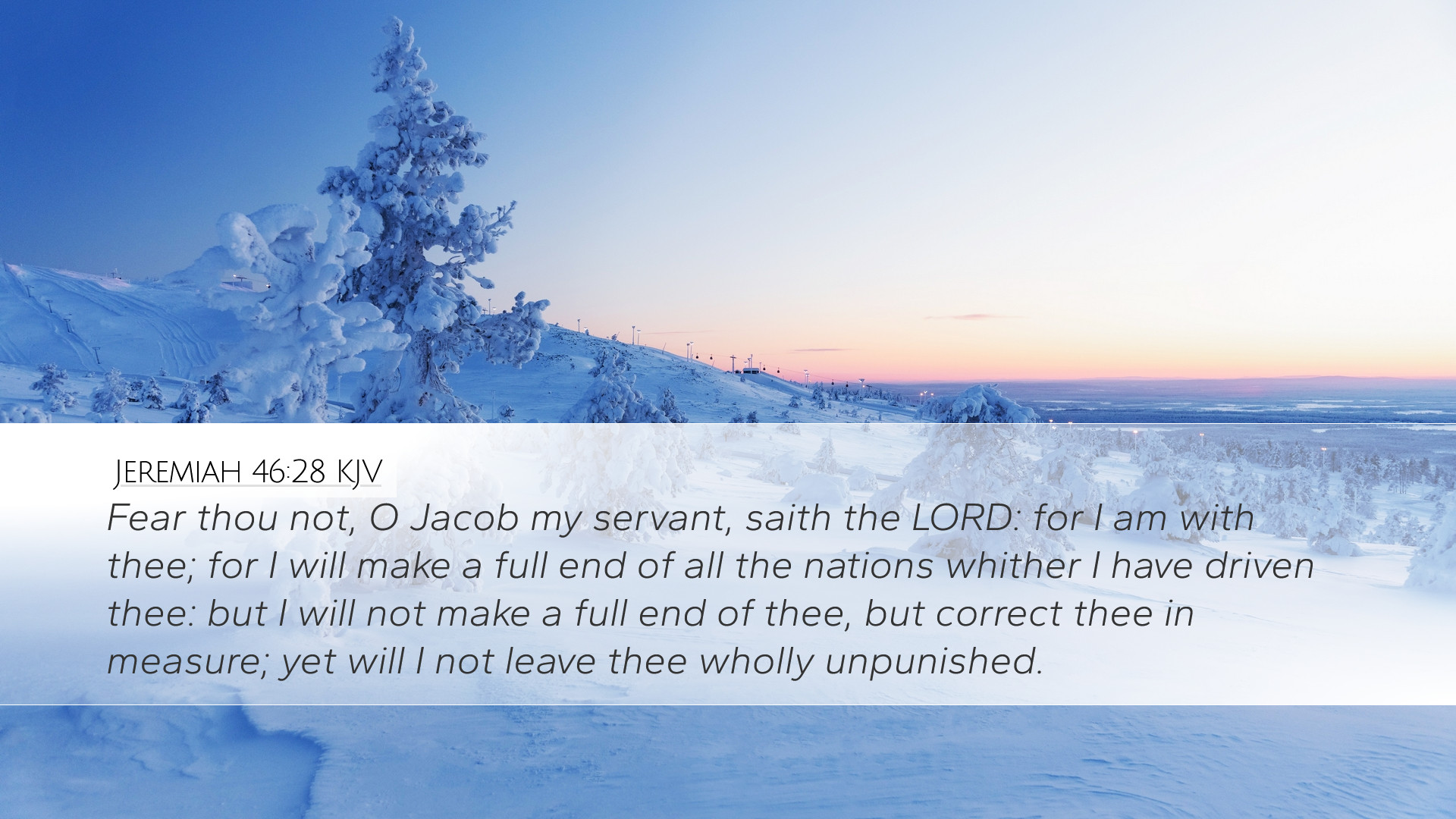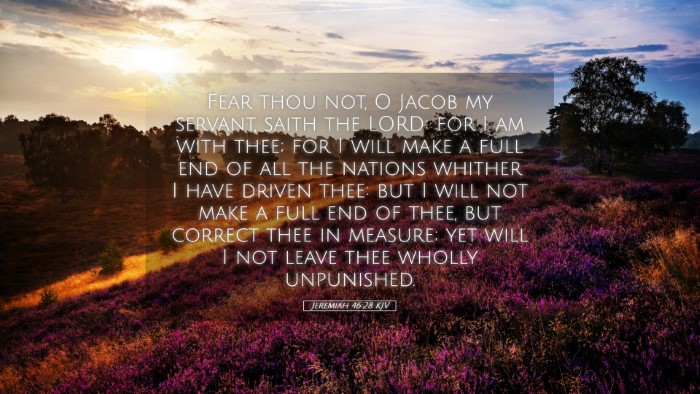Commentary on Jeremiah 46:28
Jeremiah 46:28 states: "Fear thou not, O Jacob my servant, saith the Lord; for I am with thee: for I will make a full end of all the nations whither I have driven thee: but I will not make a full end of thee, but correct thee in measure; yet will I not leave thee wholly unpunished."
Contextual Analysis
This verse appears within a passage that offers consolation to the people of Israel amidst their impending trials. The backdrop is the Babylonian influence and the looming destruction of Jerusalem. This chapter serves as a prophetic promise of God’s enduring presence, even in the wake of devastation.
Theological Insights
-
Divine Presence:
Matthew Henry notes that the assurance of God's presence (“for I am with thee”) highlights God's unwavering commitment to His covenant people. This is a foundational theme throughout scripture, emphasizing that God does not abandon His people, even in their darkest hours.
-
Judgment and Restoration:
Albert Barnes emphasizes the dual nature of God's dealings—His judgment purifies but does not consume. The phrase “correct thee in measure” suggests a disciplinary action that aims for restoration rather than destruction.
-
Conditional Promises:
Adam Clarke elaborates on the nature of God’s promises being conditional based upon the faithfulness of His people. While God promises not to make a full end of Israel, there is an implicit call to return to righteousness and faithfulness to God.
Exegesis and Linguistic Analysis
The Hebrew word for “fear” (םָחַד) in this context signals a command to cease anxiety, indicating that God’s people are to place their trust in His sovereignty. The repetition of God’s sovereignty, seen in phrases like “make a full end,” reflects His ultimate authority over all nations and circumstances.
Application for Today
-
Encouragement for God’s People:
This verse serves as a powerful reminder for contemporary believers facing fears and uncertainties. Just as God reassured Israel, He reassures the modern church of His continual presence and purpose.
-
Understanding God’s Discipline:
In a modern context, recognizing that God's corrections are measured and purposeful should encourage believers to reflect upon their lives, lead them to repentance, and cultivate hope amidst trials.
-
The Nature of True Fear:
Pastors and theologians can explore the idea that true fear is not the dread of life’s circumstances, but a reverent acknowledgment of God’s power and presence. This fear leads to trust rather than despair.
Conclusion
Jeremiah 46:28 encapsulates a message of hope and steadiness. In the face of external strife, God's loving chastisement promises eventual restoration. This scripture serves as a vital resource for pastoral guidance, personal devotions, and theological study, reminding all of the profound depth of God’s loving engagements with His people throughout history.


